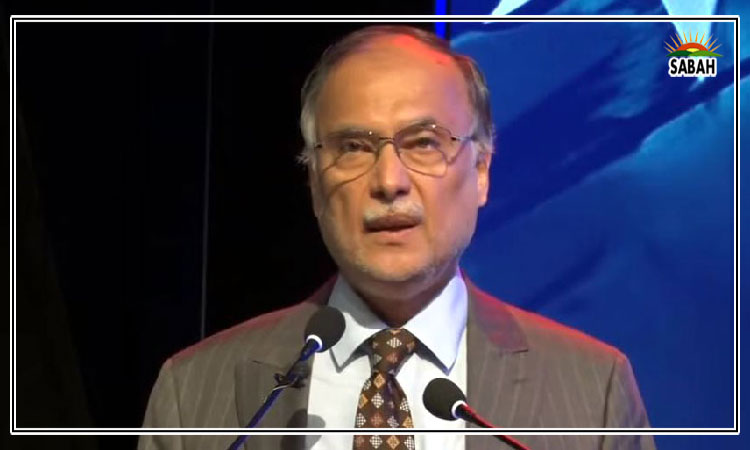A win for Pakistan ۔۔۔۔ Maheen Shafeeq
Pakistan hosted the 23rd meeting of the Council of the Heads of Government (CHG) of the Shanghai Cooperation Organisation (SCO) on October 15-16 in Islamabad.
This event marked Pakistan’s inaugural hosting of SCO-CHG, which is the second-highest decision-making body of the SCO, following the SCO Head of State Council (HSC).
The SCO is an intergovernmental international organisation of nine member states, 14 dialogue partners and three observer states cooperating on promoting trade, culture, connectivity, and regional peace and stability of which Pakistan became a member in 2017. As one of the recent members of the SCO, the convening of the SCO-CHG meeting marked a pivotal moment for Pakistan primarily for three reasons.
First, Pakistan’s organisation of the SCO meeting showcased its growing geopolitical influence. This was evident from the high-level attendance secured by Pakistan. The two-day summit was attended by seven prime ministers of SCO member-states, including China, Russia, Kazakhstan, Kyrgyzstan, Tajikistan, Uzbekistan and Belarus, and one prime minister of Observer State Mongolia. Three other high-level dignitaries included the Iranian first vice-president, the Indian minister of external affairs, and the deputy chairman of the Cabinet of Ministers and foreign minister of Turkmenistan (special g). Together these eleven high-level attendees represented more than 40 per cent of the world population.
On a global scale, this meeting was attended by four of nine nuclear weapon states (Pakistan, China, Russia and India), and two major powers (Russia and China), while regionally, major players including Pakistan, India and Iran appeared on the SCO stage. The ability to host and maintain cordial relations with all (excluding India) is a big win for Pakistan, both on regional and global levels.
It showcased Pakistan’s growing diplomatic prowess and stature among major global and regional players. Before hosting the SCO Summit, over the year Islamabad held high-level bilateral meetings with Iran, Russia, China, Turkmenistan, Tajikistan, Kazakhstan and Uzbekistan. On the sidelines of the SCO, Pakistan also held bilateral meetings with all members attending the SCO Summit (apart from India). This highlights the growing geopolitical influence of Pakistan.
The summit demonstrated Pakistan’s committed role as a main player in interregional geopolitics – not only by enhancing bilateral engagement with the member states but also by its steadfast commitment to hosting a successful multilateral summit. Pakistan’s efforts open arenas for cooperation over interregional economic integration for a win-win outcome.
Second, the hosting of the SCO Summit was crucial as it underscored Pakistan’s rising geo-economic significance. Pakistan’s unique offerings position it as an inclusive business partner, which has been emphasized repeatedly to highlight the collaborative nature of its projects under the China-Pakistan Economic Corridor (CPEC). The inclusive nature of Pakistan’s corridor neatly aligns with the SCO’s aim to counter protectionist trade measures and strengthen a non-discriminatory trading system based on principles of the World Trade Organization (WTO) and SCO Charter.
Earlier, the SCO ministerial meeting held in September 2024 in Islamabad underscored a similar objective of inclusivity. It highlighted the importance of promoting the mutual trade interests of SCO member-states and boosting economic competitiveness while creating sustainable supply chains to increase their share in global trade. This demonstrated a consensus among the member states on the need to elevate the infrastructure for economic growth. In this regard, Pakistan can leverage its unique position to foster physical connectivity through road, rail and air linkages between member states.
Third, the SCO Summit emphasised Pakistan’s geostrategic location as it offers great potential for regional and global connectivity. This highlights Pakistan’s structural role in reshaping the regional connectivity matrix. Positioned at the heart of SCO states, Pakistan has Russia, CARs and China on its north, India on its east and Iran and Afghanistan on its west. This makes Pakistan an ideal hub of transit trade.
Pakistan also boasts a network of Technical Zones and Special Economic Zones (SEZs) along with the Special Investment Facilitation Council (SIFC), a liberal investment regime, modern infrastructure, high-speed internet, and a skilled English-speaking workforce.
Pakistan is actively working towards digitalisation and incorporating emerging technologies such as AI and cyber. These attributes facilitate road, rail, air and sea linkages Pakistan provides between the regions. Russia, Central Asian Republics and Iran can be linked to Pakistan and China by connecting CPEC with the International North-South Transport Corridor (INSTC). This could be a trade route circuit connecting these states to the strategically located deep-sea port of Gwadar in the south of Pakistan, one of its assets in the region.
The realisation of this connection network can be a game changer. It not only provides opportunities for the people of Pakistan but also provides greater opportunities for the people of the organisation’s member-states. This can also be a catalyst for lifting a significant portion of the world’s population from poverty and towards a better lifestyle.
Historically, Pakistan has played a pivotal role in major turning points in global history. The hosting of the SCO Summit showcases another such point. It is the tremendous efforts Pakistan has made behind the doors to reach this level. As an emerging middle power and prominent player in the Global South, Pakistan maintains a significant geopolitical, geo-economic and geostrategic relevance. To ensure that the trajectory is maintained, Pakistan must recognise that domestic political and economic stability is directly linked with external posture. With only a stable political and economic environment, Pakistan can sustain a strong global footprint.
In its pursuit of maintaining its stature within the SCO, Pakistan must avoid being drawn into bloc politics and instead strive to cultivate cordial relationships with all parties, especially as the current global political landscape has evolved beyond the cold-war era.
The writer is a research analyst in emerging technologies and international security. She tweets/posts @MaheenShafeeq
Courtesy The News












